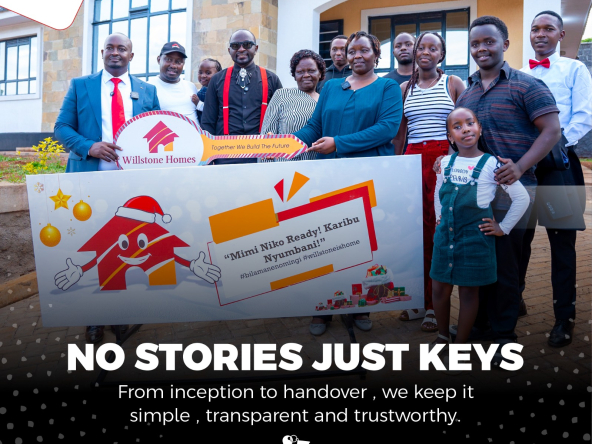Kenya’s real estate industry in 2025 is experiencing a profound transformation. From aggressive regulatory crackdowns to explosive growth in affordable housing and tech-driven innovations, the property landscape is being reshaped by both opportunity and oversight. Whether you’re a homebuyer, investor, developer, or real estate agent, the market signals are loud and clear—adapt or get left behind.
A Sector Under Watch: Money Laundering and Real Estate
The Financial Reporting Centre (FRC) has raised the alarm over rising cases of money laundering and terror financing being channeled through property deals in Nairobi and other urban centers. In response, stricter anti-money laundering (AML) compliance rules have been enforced across the board.
Under the new rules, real estate agents, developers, and lawyers must:
- Conduct Know-Your-Customer (KYC) checks on all clients.
- Report suspicious transactions that may indicate illicit cash flows.
- Maintain full transparency in both local and offshore property transactions.
This regulatory spotlight is aimed at cleaning up Kenya’s booming real estate sector and ensuring legitimate growth.
Read Also: Are Gated Communities Still Worth It? An Inside Look at Nairobi’s Controlled Estates
The Affordable Housing Boom: 800,000 and Counting
Perhaps the most exciting trend is the surge in affordable housing demand under the government’s ambitious Affordable Housing Programme. Over 800,000 Kenyans have already registered through the Boma Yangu portal, hoping to secure homes priced between KES 1 million to KES 6 million.
The momentum is being driven by:
- Competitive pricing aimed at low- and middle-income earners.
- Easy online registration and transparency via the Boma Yangu portal.
- Construction of new housing units in areas like Nairobi’s Mukuru, Mavoko, and Thika Road.
If the trend continues, 2025 could mark a turning point in Kenya’s journey toward mass homeownership.
Contractor Licensing and Compliance: A New Era of Oversight
Another major development is the contractor license renewal drive spearheaded by the National Construction Authority (NCA). All developers, engineers, and site contractors must now renew their licenses under stricter guidelines. Failure to comply may lead to blacklisting or legal action.
This move is meant to:
- Eliminate quack contractors and rogue developers.
- Raise construction standards for both residential and commercial buildings.
- Ensure that large-scale housing projects are delivered safely and on time.
For stakeholders, it’s no longer business as usual—compliance is the new currency.
PropTech and Virtual Sales: Kenya’s Digital Leap
2025 is also seeing the widespread adoption of PropTech solutions. Real estate companies are leveraging technology for:
- Virtual property tours that reduce the need for physical site visits.
- Online booking and down payment platforms that streamline the buying process.
- AI-powered property search tools to match buyers with their ideal listings.
This digital revolution is attracting diaspora buyers, tech-savvy millennials, and remote investors, all seeking seamless and transparent transactions.
Spotlight on Satellite Towns and Tech Cities
With Nairobi running out of affordable land, growth is spilling over into satellite towns like:
- Joska, Kamulu, Kangundo Road – Affordable land and upcoming gated estates.
- Ruai and Ruiru – Popular among first-time homeowners.
- Tatu City and Konza Technopolis – Mega smart cities offering live-work-play environments.
Konza, in particular, is gaining traction as Kenya’s version of “Silicon Valley,” with over 75% of Phase 1 plots sold and infrastructure nearing full completion.
What It All Means for You
| Stakeholder | Action Points |
|---|---|
| Buyers | Register on Boma Yangu early. Use virtual tours to explore remote properties. |
| Developers | Renew NCA licenses. Invest in compliance and digital marketing tools. |
| Agents | Adopt PropTech. Educate clients on new KYC and AML guidelines. |
| Investors | Consider satellite towns for long-term growth and ROI. |
Read Also: Nairobi Targets Extra KSh5 Billion from Land Rates as City Tightens Grip on Rogue Developments
A Real Estate Market in Transition
Kenya’s real estate market is no longer the unregulated goldmine it once was. It is evolving—more transparent, tech-enabled, and demand-driven. For those willing to play by the rules and adapt to new buyer expectations, the opportunities are immense.
Whether you’re looking to buy your first home, sell property, or invest in the future, 2025 is the year to stay informed and stay compliant.





